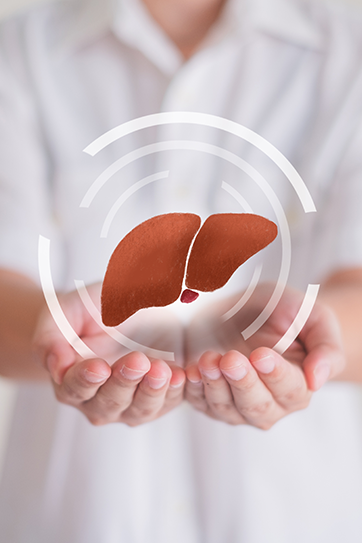Liver transplantation is a procedure performed to replace a non-functioning liver with a healthy one. This complex operation usually takes several hours and requires the recipient to take immunosuppressive drugs to prevent organ rejection. Liver transplantation offers patients a chance to lead a normal life, regain liver function, and improve their quality of life. However, regular follow-up and medication use are necessary after the transplant.
Liver transplant is a treatment option for individuals with severe liver disease. To increase the chances of success and identify suitable candidates, specific criteria must be met:
These criteria play a crucial role in determining whether an individual is a suitable candidate for liver transplantation. The patient's overall health status, compatibility, and other factors are carefully considered by a multidisciplinary team during the evaluation process.
Finding a suitable donor and performing compatibility tests are crucial before the operation. The recipient's and donor's general health, blood type, and tissue compatibility are considered during these assessments. In living donor transplants, a partial liver is usually used.
The transplant operation is usually performed by a multidisciplinary team. The surgical procedure typically involves placing the recipient and donor side by side and connecting the blood vessels and bile ducts. The operation usually takes several hours.
After the transplant, the recipient is given immunosuppressive drugs to suppress the immune system. These drugs are necessary to prevent the body from rejecting the transplanted liver and to reduce post-transplant complications. The recipient undergoes regular health checks after the transplant and continues to take these medications for life.
When successful, liver transplantation usually returns the recipient to normal health and improves liver function. However, the follow-up and treatment process is crucial. Monitoring the transplanted liver function and post-transplant complications is critical for the patient's long-term health.
The post-liver transplant period is a critical stage where the patient begins to recover immediately after the operation. This period is crucial for accepting the transplanted liver, stabilizing the recipient's health, and monitoring post-transplant complications. After the operation, the recipient is usually monitored in the intensive care unit (ICU) for a while. Vital signs are regularly monitored during this process, and supportive treatments are administered if necessary. Early detection and intervention of post-surgical complications are critical for the patient's health to stabilize.
The recipient starts taking immunosuppressive drugs to reduce the risk of the immune system rejecting the transplanted liver. These medications must be taken regularly and with discipline. The drug doses may be adjusted during the first few weeks, and the recipient must get used to taking their medication regularly.
Providing adequate nutrition is crucial during the post-liver transplant period. Following a diet plan determined by a dietitian is important to accelerate the healing process and strengthen the body. After the operation, regular check-ups and monitoring begin. Blood tests, imaging techniques, and other tests are used to monitor the function of the transplanted liver and the recipient's overall health. The follow-up process involves regular assessment of the recipient's health.
Liver transplantation in children is a treatment option used to improve the quality of life and health in young patients with severe liver disease. For this special group, liver transplantation involves a carefully planned and managed process.
First, a comprehensive assessment is performed to determine the suitability of a child for liver transplantation. This assessment includes general health status, degree of liver damage, compatibility, and ability to tolerate the surgical operation. This phase is planned with a focus on both the child's physical and psychosocial needs. Finding a donor for liver transplantation in children also involves a special process. Usually, an attempt is made to find a suitable living donor from within the family. The donor candidate is usually a family member of the child, and their genetic compatibility and health status are evaluated.
The post-transplant period may vary from other age groups. Monitoring and support plans are created in line with the child's growth and development process. The medications used to suppress the immune system and the nutrition plan are carefully managed to ensure that the child has a healthy recovery process. For detailed information about liver donation, Turkey liver transplant costs, and procedures, you can contact Medwide.




Get practical information about the topics you are most curious about. Everything you need to make informed decisions on your beauty and health journey is here with all the details from A to Z.
Generally, alcohol consumption is limited or completely prohibited after liver transplantation. This is recommended to protect the health of the transplanted liver and prevent possible complications.
The effectiveness of liver transplant operations depends on many factors. After a successful transplant, the transplanted liver can usually have a long-term functionality, but it may vary depending on the individual's age, general health status and follow-up process.
Liver transplant operations, although usually successful, involve certain risks as with any surgical intervention. Risks such as infection, bleeding, organ rejection and surgical complications are carefully managed by specialised teams.
Medwide meticulously arranges airport transfers for patients and their companions, ensuring their comfort and satisfaction.
Medwide's VIP transfer service offers patients a personalized and privileged travel experience, providing exceptional service.
Medwide transports patients and their companions comfortably and luxuriously, making their journeys enjoyable and relaxing.
Medwide offers quality healthcare services to patients at affordable prices, ensuring transparency and fairness in costs.
Medwide provides fast treatments by reducing patient wait times, our expert doctors promptly respond to our patients' needs.